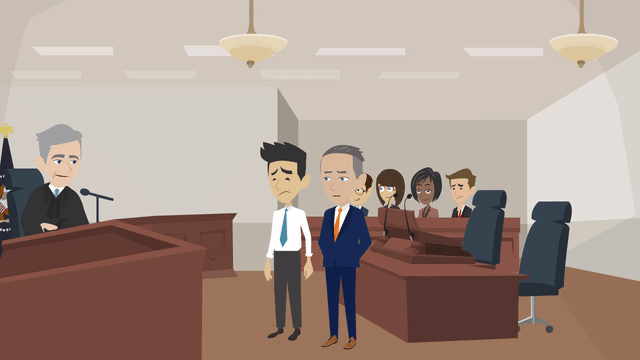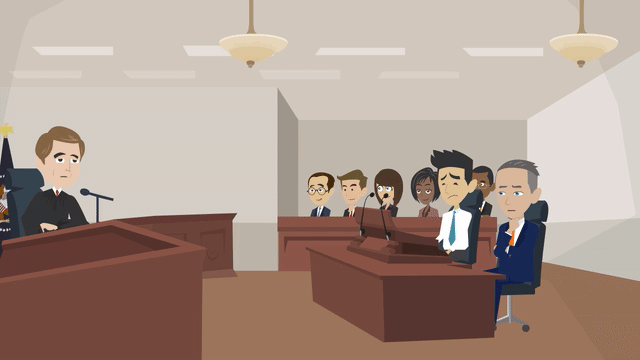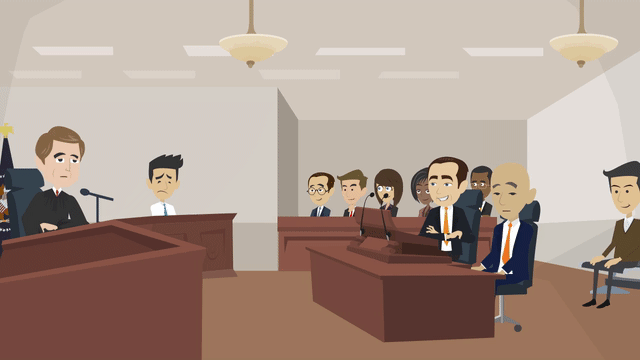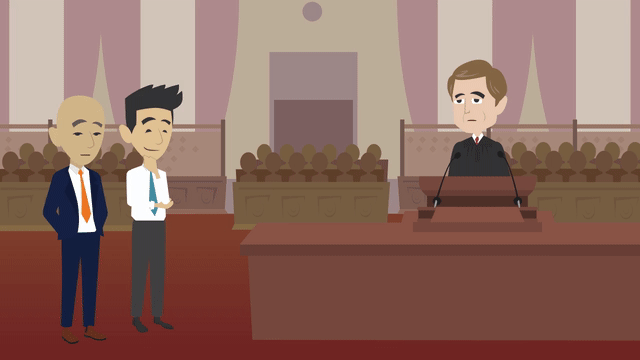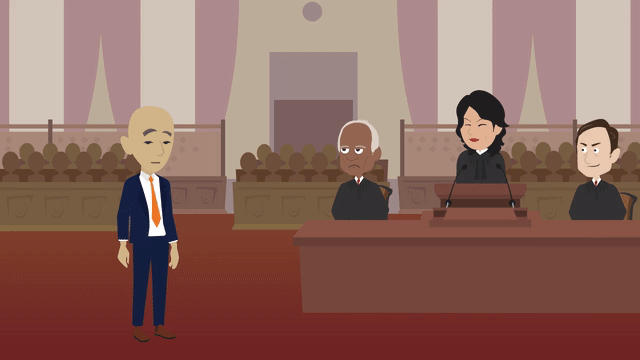Drug Related Crimes | Lawyers & Attorneys
Drug crimes are some of the most controversial in the criminal justice system. While many prosecutors seek incarceration for drug possession and drug sales, others like counselors and criminal defense lawyers see the benefit that rehabilitation and drug courts can have on families and the community.
Whatever your experience or feelings, New York and the Federal Government still takes a very strong position against drugs, especially selling them. While reading this, note the many differences between how the Federal Government and New York differentiate drug crimes. By way of example, New York has moved towards decriminalizing many of the marihuana offenses, however the Federal Government has not.
Finally, not every drug crime is listed here. For instance, in New York, there are 15 different ways to be charged with Criminal Possession of a Controlled Substance in the Fourth Degree. However, this guide is meant to detail how New York and the Federal Government categorizes various drug crimes and the authorized punishments for them.
Frequently Asked Questions About Drug Related Crimes
Our criminal defense lawyers provide answers to some important questions below.
Drug sale crimes can carry penalties that are significantly harsher than drug possession crimes. Additionally, the type of drug you are alleged to have sold, can also have significant consequences. For example, if you sell ounces or even pounds of marijuana, you face a penalty that is significantly less than if you sell only grams of cocaine. If you have been charged with criminal sale of a controlled substance it is important that you contact a criminal lawyer who handles drug sale crimes. After you contact a criminal attorney who defends people charged with drug crimes, your lawyer will meet with you to understand the facts of your case, obtain all of the discovery and evidence, explore all possible defenses to your case including any unlawful search and seizure issues, and prepare your case for trial or a plea bargain.
Drug crimes are broken down into two main categories: possession and sale. Generally speaking, selling a drug is considered more serious than possession. Possession and sale crimes are broken into two more categories: type of drug and quantity. Depending on the type of drug, as well as the quantity of drug, and whether you are charged with possession or sale, will determine how serious your drug charge is.
For some drugs, the government only has to prove the weight of the substance no matter how much actual “drug” it includes. In other words, if “crack” is made up of cocaine, baking soda, and water, its irrelevant how much of each is included – whatever the “crack” weighs, that is the weight you will be charged with. On the other hand, some crimes look to the pure drug weight itself. For mushrooms, the government must extract the psilocybin and determine its amount, rather than just weighing the entire mushroom itself.
Yes. In New York, “Sell” means to sell, exchange, give, or dispose of to another. In other words, “giving” a controlled substance to a friend, for no money, is a drug sale in New York. Sharing drugs with friends at a party is a drug sale. While this is rarely the type of case that is brought, it technically can be.
Yes. Drug sale charges are broken down into five (5) different categories known as “degrees”. Below is a list of the various drug sale crimes, their elements, and maximum punishments. If you have been charged with any of the offenses listed below, it is important for you to contact a criminal defense lawyer in your area who can defend you against these charges.
Criminal Sale of a Controlled Substance in the 5th degree is a class D felony. You can be charged with this anytime you knowingly and unlawfully sell a controlled substance. Weights and type of drug is irrelevant here. If the drug fits the definition of a controlled substance, you may be charged with this offense. You face up to 2½ years in a state correctional facility with an additional 1 year of post-release supervision. Your prison term could involve CASAT or SHOCK. You could serve up to 1 year in local jail, or probation for up to 5 years. You may also be sentenced to take part in Judicial Diversion or another Drug Court program. Your driver’s license and registration may be suspended for 6 months. You may also be fined up to $5,000 or ordered to pay restitution and other fees.
Criminal Sale of a Controlled Substance in the 4th degree can be charged when a person knowingly and unlawfully sells any of the following:
- Any amount of a Narcotic Preparation (Includes Opium-extracts and some other drugs)
- 10 ounces or more of a dangerous Depressant or 2 pounds or more of a Depressant
- Any amount of Concentrated Cannabis
- 50 milligrams or more of Phencyclidine, or any amount of Phencyclidine when you have a prior drug sale conviction (PCP, Angel Dust)
- Any amount of Methadone
- 4000 milligrams or more of Ketamine (Frequent “date rape” drug)
- 28 grams or more of a substance containing Gamma Hydroxybutyric Acid (similar to MDMA/Ecstasy)
CSCS 4th degree is a class C felony. Therefore, you face up to 5 ½ years in a state correctional facility with an additional 1 to 2 years of post-release supervision. Your prison time could involve CASAT or SHOCK. You could serve up to 1 year in local jail, or probation for up to 5 years. You may also be sentenced to take part in Judicial Diversion or another Drug Court program. Your driver’s license and registration may be suspended for 6 months. You may also be fined up to $15,000 or be ordered to pay restitution and other fees.
Criminal Sale of a Controlled Substance in the 3rd degree has many different subdivisions, but likely will be charged in one of the following circumstances:
- A substance containing a Narcotic Drug (Heroin, Cocaine; any amount)
- A substance containing a stimulant (Adderall/Ritalin), hallucinogen (Mushrooms, Peyote), hallucinogenic substance, or Lysergic Acid Diethylamide (LSD/ACID) of any amount when you have a prior conviction for any drug sale
- 1 gram or more of a Stimulant (Adderall, Ritalin)
- 1 milligram or more of Lysergic Acid Diethylamide (LSD, Acid)
- 25 milligrams or more of a Hallucinogen (Mushrooms, Peyote)
- 1 gram or more of a Hallucinogenic Substance
- 1/8 ounce or more of a substance containing Methamphetamine
- 250 milligrams or more of Phencyclidine (PCP, Angel Dust)
CSCS 3rd degree is a class B felony. Therefore, you face up to 9 years in a state correctional facility with an additional 1 to 2 years of post-release supervision. Your prison time could involve CASAT or SHOCK. You could serve up to 1 year in local jail, or probation for up to 5 years. You may also be sentenced to take part in Judicial Diversion or another Drug Court program. Your driver’s license and registration may be suspended for 6 months. You may also be fined up to $30,000 or be ordered to pay restitution and other fees.
CSCS 2nd criminalizes the sale of drugs as follows:
- ½ ounce or more of a substance containing a narcotic drug;
- ½ ouch or more of a substance containing methamphetamine;
- 5 grams or more of a Stimulant;
- 5 milligrams or more of Lysergic Acid Diethylamide;
- 125 milligrams of a Hallucinogen;
- 5 grams or more of a Hallucinogenic Substance;
- 360 milligrams or more of a substance containing methadone.
CSCS 2nd degree is a class A-II felony. Therefore, you face lifetime probation or mandatory prison with a maximum of 10 years in a state correctional facility with an additional 5 years of post-release supervision. Your prison time could involve CASAT or SHOCK. You may also be sentenced to take part in Judicial Diversion or another Drug Court program. Your driver’s license and registration may be suspended for 6 months. You may also be fined up to $50,000 or be ordered to pay restitution and other fees.
CSCS 1st criminalizes the sale of drugs as follows:
- 2 ounces or more of a substance containing a narcotic drug;
- 2,880 milligrams or more of Methadone.
CSCS 1st is a class A-I felony. Therefore, prison is mandatory and you face a minimum of 8 and a maximum of 20 years in a state correctional facility with an additional 5 years of post-release supervision. Your prison time could involve CASAT. You are ineligible for SHOCK, local jail time, probation, diversion or other drug courts. You may also be fined up to $100,000 or be ordered to pay restitution and other fees
Yes. If you are alleged to have sold drugs in or near school grounds or to a child, there can be additional charges and punishments. In or near school grounds includes not only schools, but school busses, childcare, and day care. This includes public areas that are within 1,000 feet of any of those. For the additional punishments regarding selling to a child, it must be shown that you were over twenty-one (21) and the person you sold to where under seventeen (17).
New York Penal law defines almost all drug offenses in Article 220. The only drug that is not found in article 220 of the Penal Law is marihuana, which is found in Penal Law Article 221. See our Marihuana FAQ tab for more information on that specific drug. New York classifies controlled substances into broader categories including:
- Narcotics
- Narcotic Preparations
- Hallucinogens
- Stimulants
- Depressants
- Methamphetamine
These fall under the broad category of “controlled substances”. All these drugs are listed in Schedule I, II, III, IV, or V of New York Public Health Law §3306 and are considered controlled substances.
Yes. 21 USC § 841 generally criminalizes the manufacture, distribution, dispensing, or possessing with the intent to sell, any controlled substance. The seriousness depends on several factors including if you have any criminal history, if a weapon was used, if anyone was injured, and how much and what type of drug was involved. However, even the least severe cases are significant felonies that carry potential incarceration.
Possibly. The federal sentencing guidelines, which influence sentences, have over fifteen (15) categories of drug sale categories based on what drug and how much of it is sold. Near the lower end of the punishment category includes marijuana (1 kilogram, or 20 grams if its hashish oil). The minimum amounts of heroin and cocaine are a few levels above that and start at ten (10) grams for heroin, fifty (50) grams for cocaine, or 2.8 grams of cocaine base.
At its most serious, the highest categories of drug sale which carry the harshest punishment include:
- 90 kilograms (kg) or more of heroin
- 450 kg or more of cocaine
- 2 kg or more of cocaine base
- 90 kg or more of PCP
- 45 kg or more of methamphetamine
- 900 grams (g) or more of LSD
- 90,000 kg or more of marijuana
While there are many factors that will go into the final determination, there are mandatory minimum sentences that apply in some circumstances where drugs are sold.
There is a mandatory five (5) year minimum sentence and a maximum forty (40) year sentence if you sell any of the following: Cocaine (500-4999 grams)
- Cocaine Base (28-279 grams)
- Fentanyl (40-399 grams)
- Heroin (100-999 grams)
- LSD (1-9 grams)
- Methamphetamine (5-49 grams pure, or 50-499 mixture)
PCP (10-99 grams pure, or 100-999 grams mixture)
The mandatory minimum is doubled if this is your second offense.
There is a mandatory ten (10) year minimum sentence and a maximum life sentence if you sell any of the following:
- Cocaine (5 kilograms or more)
- Cocaine Base (280 grams or more)
- Fentanyl (400 grams or more)
- Heroin (1 kilogram or more)
- LSD (10 grams or more)
- Methamphetamine (50 grams or more pure, or 500 grams or more mixture)
- PCP (100 grams or more pure, or 1 kilogram or more mixture)
The mandatory minimum is doubled if this is your second offense. If this is your third offense, a life sentence is mandatory, with few caveats.
Not necessarily. The “No Excessive Fines” clause of the Eighth (8th) Amendment does prevent the government from requiring asset forfeiture that is “grossly disproportional to the gravity of the offense”. What that means is the amount they can require forfeited must be tied to the allegations against you. As an example, if the government believes you sold $10,000 worth of drugs, then property like a vehicle, as opposed to a house, may be a target of forfeiture. It does not need to be an exact $1-for-$1 situation, however, as stated above it cannot be grossly disproportionate to your offense.
Whereas state cases may include one or two controlled sales to a confidential informant, federal cases tend to be very detailed and involved. Often, they will involve extensive wiretapping, where federal agents listen in on conversations and try to record the setting up of a drug sale or transaction.
Because the federal government also has extensive resources, these investigations can involve locating the source of the drugs, including their country of origin, how they were trafficked to the country, and then how they were transported once inside.
Finally, federal law enforcement may utilize individuals who are part of a trafficking scheme and use them as informants. They may provide valuable information about who is involved, what drugs are being sold, how much, and in what ways. Often this is in exchange for leniency against them.
Yes. Because both the state and federal governments are separate sovereigns, you may be charged by each, as well as ultimately convicted and sentenced by both. This has nothing to do with “double jeopardy”.
However, this situation is unlikely. Usually, the federal government prosecutes cases of high-volume drug sales, whereas the state handles the local level. Also, federal charges typically carry harsher sentences, and if they are prosecuting a case, other prosecutors may feel that the crime is being properly handled.
Because federal cases tend to involve higher amounts of drugs, and longer sentences, it is usually better to avoid federal prosecution, if possible. Also, state prison sentences for drugs tend to have more programs available that allow for training and early release. It is also better to be charged or have your case resolved in State Court as you can negotiate a specific sentence. In Federal Court, if you plead guilty, you only know if there is a mandatory minimum sentence and what the statutory maximum sentence is. You will also know your potential guideline exposure is. However, until your sentence is imposed, you will not know what your exact sentence is. In State Court, it is possible to enter a plea bargain that establishes the full parameters of your sentence so that there are no surprises at sentencing.
Yes, however, this requires cooperation. A cooperating witness with the government can receive a downward departure from the mandatory minimum sentence. If the government makes a “5k downward departure motion”, a judge is not bound by the mandatory minimum sentence. Downward departure motions are made under seal so that they are not available to the public. A person charged with a Federal Drug Sale or Drug Possession may also be eligible for the safety valve exception which also allows for a judge to sentence someone below a mandatory minimum sentence.
Depending on the amount possessed, or its form, possession of marijuana can be either a violation or crime. Unlawful Possession of Marijuana in the Second Degree (Penal Law §221.05) is simple unlawful possession of marijuana. It is a violation, not a crime, and punishable by a maximum $50 fine. Unlawful Possession of Marijuana in the First Degree (Penal Law §221.10) is unlawful possession of more than one ounce of preparations, compounds, mixtures, or substances that contain marijuana. It is a violation, not a crime, and punishable by a maximum $200 fine. You may also be required to obtain a substance abuse evaluation, engage in treatment, and perform community service.
However, if you possess more than two ounces of marijuana, you will face criminal consequences.
If you are convicted of either unlawful possession of marijuana in the first degree or unlawful possession of marijuana in the second degree, you will not have a criminal record. However, as drug offenses, they can have serious repercussions because marijuana is still federally illegal. They could result in loss of federal loans, including student loans, as well as make you ineligible for various programs in the future.
Just because they will not result in a criminal record does not mean you should just plead guilty. There are many collateral consequences you face with drug offense convictions.
Some low-level marijuana offenses require that the first offense be adjourned in contemplation of dismissal (commonly referred to as “ACOD” or “ACD” in New York). An ACOD requires you to remain arrest-free for six (6) months, at which time the case will be dismissed and sealed without any additional appearances or fine. Beyond remaining arrest-free you may need to get a substance abuse evaluation, engage in treatment, or perform community service.
After the first ACOD, subsequent charges for these offenses may still be ACOD, however it is no longer mandatory. The district attorney’s office and the court will have to agree to do so.
Criminal Possession of Marijuana 4th Degree
Criminal Possession of Marijuana in the Fourth Degree (Penal Law §221.15) is unlawful possession of more than two ounces of preparations, compounds, mixtures, or substances that contain marijuana. This is a crime; a class A misdemeanor. You face up to 1 year in jail, 3 years of probation, and a $1,000 fine. You could also be required to engage in substance abuse treatment or perform community service.Criminal Possession of Marijuana 3rd Degree
Criminal Possession of Marijuana in the Third Degree (Penal Law §221.20) is unlawful possession of more than eight ounces of preparations, compounds, mixtures, or substances that contain marijuana. This is a crime, a class E felony. You face up to 4 years in prison, 5 years of probation, and a $5,000 fine. You could also be required to engage in substance abuse treatment or perform community service.Criminal Possession of Marijuana 2nd Degree
Criminal Possession of Marijuana in the Second Degree (Penal Law §221.25) is unlawful possession of more than sixteen ounces of preparations, compounds, mixtures, or substances that contain marijuana. This is a crime, a class D felony. You face up to 7 years in prison, 5 years of probation, and a $5,000 fine. You could also be required to engage in substance abuse treatment or perform community service.Criminal Possession of Marijuana 1st Degree
Criminal Possession of Marijuana in the First Degree (Penal Law §221.30) is unlawful possession of more than ten pounds of preparations, compounds, mixtures, or substances that contain marijuana. This is a crime, a class C felony. You face up to 15 years in prison, 5 years of probation, and a $15,000 fine. You could also be required to engage in substance abuse treatment or perform community service.
Yes. Other than dispensaries licensed through New York State for medicinal purposes, selling any amount of marijuana is a crime. The more marijuana sold, the higher the penalties.
Criminal Sale of Marijuana 1st Degree
Criminal Sale of Marijuana in the Fifth Degree (Penal Law § 221.35) is unlawfully selling two grams or less, of preparations, compounds, mixtures, or substances that contain marijuana; or one cigarette containing marijuana. This is a crime; a class B misdemeanor. You face up to 90 days in jail, 1-year probation, and a $500 fine. You could also be required to engage in substance abuse treatment or perform community service.Criminal Sale of Marijuana in the 4th Degree
Criminal Sale of Marijuana in the Fourth Degree (Penal Law § 221.40) is unlawfully selling marijuana other than as described in Criminal Sale of Marijuana in the Fifth Degree. This is a crime; a class A misdemeanor. You face up to 1 year in jail, 3 years probation, and a $1,000 fine. You could also be required to engage in substance abuse treatment or perform community service.Criminal Sale of Marijuana in the 3rd Degree
Criminal Sale of Marijuana in the Third Degree (Penal Law § 221.45) is unlawfully selling twenty-five grams or less, of preparations, compounds, mixtures, or substances that contain marijuana. This is a crime, a class E felony. You face up to 4 years in prison, 5 years of probation, and a $5,000 fine. You could also be required to engage in substance abuse treatment or perform community service.Criminal Sale of Marijuana in the 2nd Degree
Criminal Sale of Marijuana in the Second Degree (Penal Law § 221.50) is unlawfully selling four ounces or less, of preparations, compounds, mixtures, or substances that contain marijuana; or selling marijuana to anyone less than 18-years-old. This is a crime, a class D felony. You face up to 7 years in prison, 5 years of probation, and a $5,000 fine. You could also be required to engage in substance abuse treatment or perform community service.Criminal Sale of Marijuana in the 1st Degree
Criminal Sale of Marijuana in the First Degree (Penal Law § 221.55) is unlawfully selling sixteen ounces or less, of preparations, compounds, mixtures, or substances that contain marijuana. This is a crime, a class C felony. You face up to 15 years in prison, 5 years of probation, and a $15,000 fine. You could also be required to engage in substance abuse treatment or perform community service.
Yes. Because New York defines “selling” broadly, you can still be charged with criminal sale of marijuana even if you only give it to your friends or serve as a pass through between the dealer and your friends. Even if you do not make any money in giving it to your friends, you can still be charged with sale of marijuana.
New York Penal Law defines almost all drug offenses in Article 220. The only drug that is not found in article 220 of the Penal Law is marihuana, which is found in Penal Law Article 221. See our Marihuana FAQ tab for more information on that specific drug.
Drug Crimes are broken down into two main categories: possession and sale. Generally speaking, selling a drug is more serious than possession. However, it is important to note that if you possess certain amounts of drugs, the law may presume that you are possessing the drug with the intent to sell it. These possession cases can sometimes be just as serious as actual sales.
Possession and sale crimes are broken into two more categories: type of drug and amount. New York classifies controlled substances into broader categories including:
- Narcotics
- Narcotic Preparations
- Hallucinogens
- Stimulants
- Depressants
- Methamphetamine
- Marihuana
All fall under the broad category of “controlled substances”. All drugs listed in Schedule I, II, III, IV, or V of New York Public Health Law §3306 are controlled substances, except for marihuana, but including concentrated cannabis.
For some drugs, the government only has to prove the weight of the substance no matter how much actual “drug” it includes. In other words, if “crack” is cocaine, baking soda, and water, its irrelevant how much of each is included – whatever the “crack” weighs, that is the weight you will be charged with.
On the other hand, some crimes look to the pure drug weight itself. For mushrooms, the government must extract the psilocybin and determine its amount, rather than just weighing the entire mushroom itself.
Yes. “Possess” or “Possession” can be actual or constructive. Actual means it is in your hand, a pocket, or any belonging you have with you. Constructive means more than one person has access to the drugs. For example, if you are in a vehicle and drugs are in a glove box, center console, under the seat, you can still be charged with constructive possession.
No. You can only be convicted of a drug offense if you possessed the drugs, and if you knew what the drugs were. “Knowingly” means that you are aware that the item or substance contains a controlled substance.
Yes. “Sell” means to sell, exchange, give, or dispose of to another. In other words, “giving” a controlled substance to a friend, for no money, is a drug sale in New York. Sharing drugs with friends at a party is a drug sale. While this is rarely the type of case that is brought, it technically can be.
Yes. Possession charges are broken down into 7 degrees, though notably there is currently no crime defined as Criminal Possession of a Controlled Substance in the Sixth Degree (CPCS 6). Below is a list of the various drug possession crimes, their elements, and maximum punishments. If you have been charged with any of the offenses listed below, the consequences of that offense are detailed for your review.
This is the lowest drug possession charge. You can be charged with this anytime you knowingly and unlawfully possess a controlled substance. Weights and types are irrelevant here. If the drug fits the definition of a controlled substance, you may be charged with this offense. CPCS 7th is a class A misdemeanor. You face up to 1 year in local jail, up to 3 years of probation, and a maximum fine of $1,000. You could also be ordered to engage in some type of rehabilitation or substance abuse counseling and may also be required to perform community service.
CPCS 5th is most commonly charged when a person knowingly and unlawfully possesses any controlled substance with the intent to sell it. Remember that “sell” has a very broad definition. It can also be charged in the following circumstances without any intent to sell:
- ½ ounce or more of a Narcotic Preparation (Includes Opium-extracts and some other drugs)
- 50 milligrams or more of Phencyclidine (PCP, Angel Dust)
- ¼ ounce or more of concentrated Cannabis
- 500 milligrams or more of Cocaine
- Over 1000 milligrams of Ketamine (Frequent “date rape” drug)
- 28 grams or more of a substance containing Gamma Hydroxybutyric Acid (like, but not the same as MDMA/Ecstasy)
CPCS 5th is a class D felony. Therefore, you face up to 2½ years in a state correctional facility with an additional 1 year of post-release supervision. Your prison term could involve CASAT or SHOCK. You could serve up to 1 year in local jail, or probation for up to 5 years. You may also be sentenced to take part in Judicial Diversion or another Drug Court program. Your driver’s license and registration may be suspended for 6 months. You may also be fined up to $5,000 or be ordered to pay restitution and other fees.
CPCS 4th has many different subdivisions, but likely will be charged in one of the following circumstances:
- 1/8 ounce or more of a substance containing a Narcotic Drug (Heroin, Cocaine)
- ½ ounce or more of a substance containing Methamphetamine
- 2 ounces or more of a substance containing a Narcotic Preparation
- 1 gram or more of a Stimulant (Adderall, Ritalin)
- 1 milligram or more of Lysergic Acid Deithylamide (LSD, Acid)
- 25 milligrams or more of a Hallucinogen (Mushrooms, Peyote)
- 1 gram or more of a Hallucinogenic Substance
- 10 ounces or more of a dangerous Depressant
- 2 pounds or more of a Depressant
- 1 ounce or more of a substance containing concentrated Cannabis
- 250 milligrams or more of Phencyclidine (PCP, Angel Dust)
- 360 milligrams or more of Methadone
- 4000 milligrams or more of Ketamine (Frequent “date rape” drug)
- 200 grams or more of a substance containing Gamma Hydroxybutyric Acid (like, but not the same as MDMA/Ecstasy)
CPCS 4th is a class C felony. Therefore, you face up to 5 ½ years in a state correctional facility with an additional 1 to 2 years of post-release supervision. Your prison time could involve CASAT or SHOCK. You could serve up to 1 year in local jail, or probation for up to 5 years. You may also be sentenced to take part in Judicial Diversion or another Drug Court program. Your driver’s license and registration may be suspended for 6 months. You may also be fined up to $15,000 or be ordered to pay restitution and other fees.
CPCS 3rd involves knowingly and unlawfully possessing any of the following with the intent to sell them:
- Any amount of any Narcotic Drug (Cocaine, Heroin);
- 1/8 ounce or more of any substance containing Methamphetamine;
- A Stimulant (Adderall, Ritalin), Hallucinogen or Hallucinogenic Substance (Mushrooms, Peyote), or Lysergic Acid Diethylamide (LSD) – if you have any prior drug conviction;
- 1 gram or more of a Stimulant;
- 1 milligram or more of Lysergic Acid Diethylamide;
- 25 milligrams or more of a Hallucinogen;
- 1 gram or more of a Hallucinogenic Substance;
CPCS 3rd also includes penalties for larger personal possession amounts including:
- 5 grams or more of a Stimulant (up for 1);
- 5 milligrams or more of Lysergic Acid Diethylamide (up from 1);
- 125 milligrams of a Hallucinogen (up from 25);
- 5 grams or more of a Hallucinogenic Substance (up from 1);
- ½ ounce or more of a substance containing a narcotic drug (up from 1/8);
- 1,250 milligrams or more of Phencyclidine (up from 250).
CPCS 3 is a class B felony. Therefore, you face up to 9 years in a state correctional facility with an additional 1 to 2 years of post-release supervision. Your prison time could involve CASAT or SHOCK. LINK You could serve up to 1 year in local jail, or probation for up to 5 years. You may also be sentenced to take part in Judicial Diversion or another Drug Court program. Your driver’s license and registration may be suspended for 6 months. You may also be fined up to $30,000 or be ordered to pay restitution and other fees.
CPCS 2nd does not contain any requirement that you intend to sell the controlled substance. It criminalizes large possession amounts as follows:
- 4 ounces or more of a substance containing a narcotic drug (up from ½ ounce);
- 2 ounces or more of a substance containing methamphetamine (up from ½ ounce contained in CPCS 4);
- 10 grams or more of a Stimulant (up from 5);
- 25 milligrams or more of Lysergic Acid Diethylamide (up from 5);
- 625 milligrams or more of a Hallucinogen (up from 125);
- 25 grams or more of a Hallucinogenic Substance (up from 5);
- 2,880 milligrams or more of Methadone (up rom 360 contained in CPCS 4).
CPCS 2nd is a class A-II felony. Therefore, you face a minimum of 3 and a maximum of 10 years in a state correctional facility with an additional 15 years of post-release supervision. Your prison time could involve CASAT or SHOCK. You could also be sentenced to lifetime probation. You may also be sentenced to take part in Judicial Diversion or another Drug Court program. Your driver’s license and registration may be suspended for 6 months. You may also be fined up to $50,000 or be ordered to pay restitution and other fees.
CPCS 1st as with CPCS 2nd has no requirements of an intent to sell, however it contains just two subdivisions at the highest weights including:
- 8 ounces or more of a substance containing a Narcotic Drug;
- 5,760 milligrams of Methadone.
CPCS 1st is a class A-I felony. Therefore, you face a minimum of 8 and a maximum of 20 years in a state correctional facility with an additional 15 years of post-release supervision. Your prison time could involve CASAT. You are ineligible for SHOCK, local jail time, probation, diversion or other drug courts. You may also be fined up to $100,000 or be ordered to pay restitution and other fees.
The Safety valve exception allows an additional two-point guideline reduction if you:
- Do not have more than 1 criminal history point.
- There was no violence or allegations of a gun.
- No one was injured.
- You were not an organizer or leader of the offense.
- You have provided a truthful debriefing of your conduct.
If this occurs, you may be sentenced below a mandatory minimum sentence.
Timeline of a Criminal Defense Case
- Whether you just made a big mistake, or are being falsely accused, this can be a very emotional and important time in a case
- It is very important that you remain silent and not answer any questions about the case without a lawyer present
- Contact a criminal defense attorney as soon as possible
- Confirm the lawyer is an experienced criminal defense lawyer
- Meet with the lawyer who will help you understand the process of a criminal case
- If you have been arrested, critical proceedings and time frames begin immediately
- You will appear before a judge who will determine if you will be incarcerated, released on bail or supervision, or released without conditions
- If you are charged with a felony in a town, village or city court, the prosecuting agency will have six months from the date of your arrest to determine whether to present your case to a grand jury to seek an indictment or return your case to a lower court to be handled as a misdemeanor
- Discovery is the exchange of information between the governmental agency prosecuting you, you, and your attorney
- In New York State this process begins shortly after your appearance in court
- You can expect exchange of the following if it exists in your case:
- Police Reports
- Investigative Notes
- Videos / Body Camera Footage / Dash Camera Footage
- Forensic Reports
- Photographs
- Exculpatory Material (Brady)
- Impeachment Material
- You and your attorney may also be engaged in information gathering that includes:
- Freedom of Information Law (FOIL) Requests/Responses
- Additional Witness Interviews
- Expert Evaluations / Disclosures
- Motions are written applications to the court to request any of the following:
- Preclude Evidence
- Suppress Evidence
- Seek a Ruling on a Constitutional Rights Violation
- Seek Outright Dismissal of One or More Charges Based on Legal/Factual Matters
- Request Hearings
- A plea bargain is an offer from the prosecuting attorney to resolve your case
- Whether to plead guilty or not is always a choice you get to make, not your attorney
- Your attorney will meet with you, discuss the facts and the law of your case, and offer advice. A plea offer takes into consideration your charges as well as:
- Prior criminal history if any
- Life experiences
- Evidentiary Problems
- Post-Incident Actions
- Mental Health Counseling
- Substance Abuse Treatment
- Anger Management Treatment
- If you choose not to accept a plea bargain and are heading to trial, there are likely to be hearings to consider the following:
- Preclusion/Suppression of Evidence
- Admissibility of Evidence
- What Prior Criminal History/Bad Acts May Be Introduced by the Prosecutor if You Testify on Your Own Behalf
- During a hearing, there is no jury, and the judge will make factual and legal determinations regarding what evidence will be allowed at trial.
- You have the right to a trial by a fair and impartial jury or by the judge who will act as both judge and jury
- At a trial, the prosecution has the burden to prove your guilt beyond a reasonable doubt
- The judge or jury will listen to the evidence presented and the arguments by the lawyers, apply the facts to the law, and render a verdict of not guilty or guilty
- A Verdict must be unanimous
- If you are convicted at trial, or if you entered a plea bargain, there will be a sentencing date where your punishment will be imposed by the judge
- If you previously entered a plea bargain, the judge will likely impose the agreed upon sentence at that time
- In the event you are convicted, you have the right to appeal
- This is true whether you plead guilty or are convicted after trial
- However, by accepting a plea bargain, you may have waived some of your appellate rights
- It is important that your attorney file a notice of appeal on your behalf and that you discuss the appeal process with your lawyer
LaMarche Safranko Law Testimonials
“Dear Mr. Safranko,
Thank You so much for answering my question, and so expediently!
The dedication, respect, and consideration with which you treat your clients, current and past, is remarkable. It is why I reached out to you when searching in my time of need, and why I would highly recommend…
“The arrest of my husband in 2008 was an extremely difficult and emotional time for our family. The arrest turned our lives upside down. It was sudden and unexpected and had tragic emotional as well as financial consequences. I had no idea what to do under the circumstances….
“Dear Andy,
Thank you so much for everything you have done for our son over the last three years. This has been a very challenging time for our family and the knowledge that our son has an attorney as capable and amazing as you are has given us peace of mind!
“I wanted to take this opportunity to thank you for your excellent representation on my recent matter. I have worked with lawyers, and in law firms much of my professional life, but I have never encountered the rare mix of skill, integrity and humanity in one individual—you….
“I wanted to express my deepest appreciation to Mr. Andrew Safranko for the exceptional job he did in regards to my legal representation. Mr. Safranko displayed the utmost in professionalism and discretion during the entire court process, and took the time to explain each and every step….
“I can honestly say that the best decision I’ve ever made was retaining George LaMarche as my attorney. I was in a situation where everything wasat risk; my career, livelihood, and the ability to provide for my family. In desperation, I contacted over a dozen attorneys. The majority of the lawyers I spoke with promised results without seeing paperwork or knowing valuable facts….
“Dear George, Andy and Staff,
Thank you all for your kindness and all your help in getting back to my wellbeing and life. I could not have done it without you all. Everything is going so well again. I recommend you highly. Thanks Again!”
“Dear Andrew and George,
I cannot thank you enough for your hard work, diligence, and selfless manner that you put towards my legal difficulties in Colonie. From the first moment I met you, you helped reassure me that things were going to turn out in a more favorable manner than I originally thought. Clearly, the final result of my court case displays the quality of time and work that you put into this….
“Throughout the attorney client relationship regarding my personal injury lawsuit, George and his staff continually exhibited tremendous amounts of legal knowledge, skill, and a vast amount of expert resources that ultimately resulted in a final judgment in my favor. George was there every step of the way to explain where we stood and what to expect next and there was never a need to question his professional judgment…
“No one likes to be in a bad situation, but if you need a lawyer George is your man. Not only does he point you in the right direction he offers good advice for your future. As much as we bring him business he does not encourage that next time anticipation….
“The staff at LaMarche Safranko Law took care of whatever I needed, it was just fabulous. It was top shelf, if I called, I got George. If he was in a meeting, they left him a message. He called me right back after the meeting. Everybody was very courteous and very nice there. If I left a voicemail, everybody got back to me quickly. The level of service was very, very good and I would Highly recommend them.”
“I cannot thank George E. LaMarche lll and his team for the excellent legal work they provided for my son, and in extension, our entire family. His experience, knowledge of the law, networking ability and communication is second to none. In our case, our son was wrongly accused by a small town police officer and charged with 5 tickets…
“I am an attorney who found himself in the middle of a serious, personal legal matter that compromised not only my personal life but my professional life as well. I immediately contacted Andrew (Andy) Safranko, Esq. Andy worked tirelessly and extremely hard to bring my legal situation to a very favorable resolution. In so doing, Andy not only saved certain aspects of my personal and professional life…
“My family and I cannot thank George and his staff enough for all of the support and guidance they have given us over the past six months. Anyone who has ever suffered a personal injury knows how difficult they are to overcome, but I’m glad we had such an intelligent and hardworking attorney on our side so I could focus on my recovery rather than on the details of the case….




